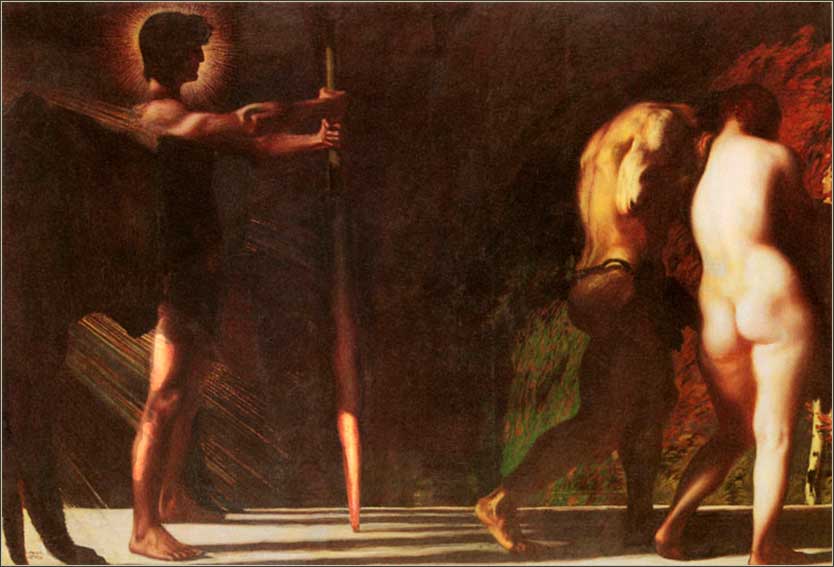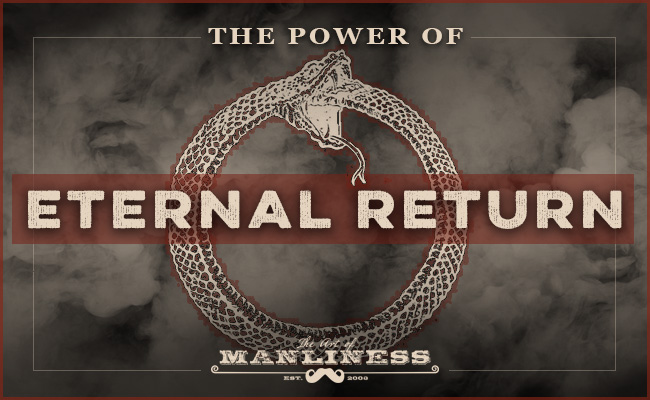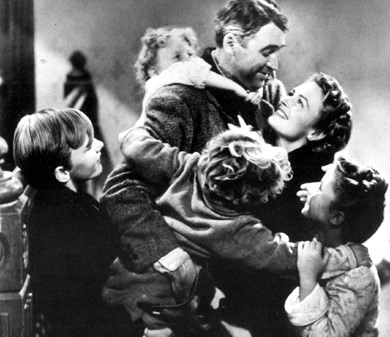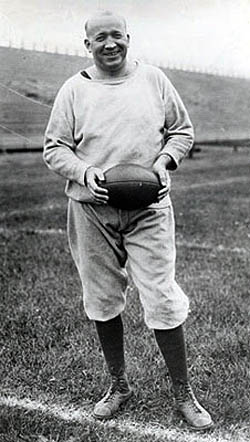
Though one of the first Europeans to explore Tahiti, Louis-Antoine de Bougainville, only stayed on the island for about ten days, he was thoroughly impressed with what appeared to be a true paradise on earth. The natives, he observed, were graceful in movement, gentle in disposition, generous in spirit, and peaceful at heart. They seemed to live in a state of childlike innocence — free from shame and modesty, open in their sexuality and nakedness, living only for pleasure and love. Bougainville saw them as untainted by the artificial mores of civilization — the very picture of the “noble savage” ideal then being celebrated back on the continent.
Tahiti’s environment itself was similarly inviting — the surroundings were verdant, the climate temperate, the days sunlit, and the food not only plentiful, but seemingly easy to gather and harvest. “I thought,” Bougainville wrote, “I was transported into the Garden of Eden.”
Even more than a century after the French explorer’s stay in 1768, and the observations of subsequent visitors who noted that Tahiti’s inhabitants were not always as peaceable as they seemed nor its resources as plenteous, travel and fiction literature continued to paint the island as an oasis of innocence, beauty, and easy abundance. Said one such leaflet:
“Born where there is no winter, in a country where the soil is richly fertile, the Tahitians have only to lift their hands in order to harvest the bread-fruits and wild bananas which form their staple food. Consequently, they have no need to work and the fishing which they carry on for the sake of a little variety in their diet is more a pleasure which they indulge in gladly…In this land where misery is unknown and labor needless…everyone has his place in the sun and in the shade, his place in the water, and his sustenance in the wood.”
One who was intrigued by this alluring description of an earthly paradise was the French artist Paul Gaugin, who saw in Tahiti a chance for a fresh start — the opportunity to throw off “everything that is artificial and conventional” and sustain himself on the fruits of an abundant garden; “There in Tahiti in the silence of the lovely topical night,” he dreamed, “[I will be] free at last, with no money troubles, and able to love, to sing and to die.”
Gaugin left his wife and children for the island in 1891, but found his destination was not quite the bountiful idyll he had imagined — that even the temperate climate had both seasons of plenty and seasons of greater scarcity, and that it was more difficult to live off the land than reaching up to grab a banana or pulling netfuls of fish from well-stocked lagoons. As he lamented, even in Tahiti, food didn’t fall into one’s lap without some effort:
“[Nature] is rich, she is generous, she refuses to no one who will ask his share of her treasures of which she has inexhaustible reserves in the trees, in the mountains, in the sea. But one must know how to climb tall trees, how to go into the mountains, in order to return weighed down with heavy booty…One must know how, one must be able to do things.”
Gaugin was not the first man to go off seeking paradise only to be disappointed in the reality he found. And he certainly won’t be the last.
Mankind has not given up on its search for a “Tahiti” — a place of plenty where one can live in innocent idleness, having every need met without labor or toil. And there remain innumerable companies and ads that seek to capitalize on this universal human desire — the longing not just to literally journey to a location where the living’s easy, but to achieve an unburdened, unstressed psychological state. Such hawkers of attainable paradise may not produce leaflets trumpeting the wonders of Tahiti, but the promise being offered is very much the same: use this gadget, employ this hack, take this lifestyle design course, and you can return to Eden. You can earn money without work, eat whatever you want without gaining weight, love whoever you will without consequence.
Underneath the allure of all these promises — at the bottom of this ache for utopia — lies a desire to return to youth, to restore the responsibility-free life that was forfeited in the process of growing up.
Yet no matter how much one seeks this left behind paradise, there’s no going back to Eden.
By the Sweat of Your Brow
The story of Adam and Eve is common to all of the world’s Abrahamic religions, and its influence is infused throughout cultures around the world. Some see the story as absolute scripture, as literally true. Others see it only as literature, as myth. Between, and in-between the two camps, multiple interpretations of the story have been forwarded — some which view its meaning not, or not only as, a carrier of spiritual/theological truths, but as a symbolic meditation on human psychology.
Arguably the most compelling of these interpretations, in my view, has been advanced by scholars who see the story of Adam and Eve as a metaphor for maturation.
In this view, the innocent state in which Adam and Eve originally exist corresponds to the innocence that all children inhabit. Just like kids, Adam and Eve initially do not know they are naked nor feel shame in their bare bodies. And just like kids, the pair’s responsibilities are light. Adam is tasked with working and taking care of this “garden eastward in Eden,” but his surroundings seem to be so lush, that one does not imagine his duties being particularly laborious; his father has provided an abundance of fruit trees from which Adam and Eve can simply pluck their daily sustenance. All their needs are taken care of by a loving parent.
There’s one tree in the garden Adam and Eve can’t eat from, however — that which bears the fruit of the knowledge of good and evil. Ignorant of these two moral poles, they have never made a real mistake, but also have never been tempted to sin, nor had to make a fully autonomous choice between right and wrong. As the parent of young children, Adam and Eve’s father wants to protect them from the brunt of that struggle, knowing that with more knowledge comes more responsibility — weightier consequences for choices — and that they aren’t yet ready to make all their own decisions.
Unlike in the traditional Christian interpretation of the story in which God wishes to keep Adam and Eve from the tree of knowledge indefinitely, however, in looking at it as a metaphor for maturation, the father knows that his children will eventually partake of its fruit, and he both dreads that day, and yet understands its necessity in their future happiness.
Like all parents, he wrestles with dueling impulses: on the one hand, he wants his kids to stay innocent, safe, and close to him forever; but on the other, he knows that they can’t grow or progress unless they separate from him, gain knowledge, and learn to exercise moral agency on their own. Hence his conflicting commandments: he tells Adam and Eve not to eat the fruit from the tree of knowledge of good and evil…but he also tells them to multiply. Some readers have felt that this latter commandment could not have been fulfilled by Adam and Eve without their first breaking the former, and thus becoming awakened to their nakedness, their sexuality — their desire for each other. Here then is a father who doesn’t want his kids to get older, but knows they must to fulfill their potential, and to follow his pattern in having children themselves. It’s a fractured feeling every parent has experienced: “Don’t grow up!” “Please grow up!”
It is Eve who first recognizes that “the fruit of the tree was good for food and pleasing to the eye, and also desirable for gaining wisdom” and who first partakes of it — no surprise, since girls mature before boys do. Adam, still in the prepubescent “Girls are yucky” phase, has to be coaxed into the transgression, but he too comes to see that eating the fruit is the only way forward. The pair recognize their nakedness and their first feelings of shame — they have entered adolescence and discovered their sexuality. They will begin to individuate from their father, and make more and more of their own choices.
Their father, in turn, mourns when he realizes this fact and recognizes his children have become sexualized beings and are growing up — and away from him. He disgorges the consequences that lie down the path they are heading — onerous toil and painful childbirth — which, while often seen as punishments in the traditional interpretation of the story, are here read as descriptive rather than prescriptive; i.e., this is just how adulthood is — here’s what to expect.
Adam and Eve have just begun the journey to growing up, and they need to learn even more by striking out on their own. It’s time for them to leave the Garden of Eden. But the rupture between Adam and Eve and their father is hardly total. He makes garments of skin to protect them as they set out for the “real world.” And while they no longer walk with their father daily as they did in the garden, they continue to speak with him as they venture outside it. They’re still made in his image.
As Adam and Eve continue to grow up, they’ll make mistakes, and the consequences will sometimes sting — as will the thorns and thistles they encounter in their work. Sometimes Adam will resent the sweat that forms on his brow as he tries to make a life for him and Eve. Sometimes he will be homesick for Eden. But while the line of communication and mentoring between children and father remains intact, there is ultimately no going back for Adam. The way is barred by cherubim and a flaming sword; regression to an infantile state isn’t possible. Or even desirable.
Not if he wants to continue to grow. Not if he wants to become who he is. There are lessons he can only learn outside the garden.
Seen through a theological lens, the story of Adam and Eve might be an explanation for how sin entered the world. But seen another way, it might not only describe a fall from spiritual grace, but a rise to earthly moral agency — an allegory of the challenge all mortals face in separating from their parents, asserting their own will, and growing up.
Heeding the Cherubim and a Flaming Sword
I like to think of this layer of meaning on the Adam and Eve story when I’m putting my children to bed at night. The lights are low, their beds are cozy, and I’m often tired. Knowing I have a few more hours of work to do before I get to turn in, I sometimes want to just crawl under the covers with them, sleep as long as I desire, and wake up to another day of playing and making crafts at school. I want to be six again.
But then I think of the cherubim and their flaming sword, and I am comforted to remember that one of humanity’s oldest texts foretold this feeling thousands of years ago. That it’s universal and timeless and millions upon millions have felt and overcome it before.
I remember in that moment that wish as I might, there’s no going back to Eden, and that even if there was, I wouldn’t want to. That the search for a hack to get there, or some secret vacation spot where it’s hiding is not only fruitless, but counterproductive in reaching my goal of learning as much as possible and maximizing my full potential before I die.
I remember that childhood is full of innocence, but also ignorance; that knowledge brings freedom and autonomy, but also responsibility, and that responsibility brings burdens. And I try to welcome them as grounding counterbalances in a life that would otherwise be marked by empty weightlessness. I try to find the ways in which the sweat of my brow is not vindictive but redemptive.
I remind myself that while I desire to be taken care of, such care would exact a price in my autonomy and ability to be an independent moral agent. That you can only meaningfully say yes, if you’re fully able to say no. When the urge to crawl back into the womb is strong, I remember that while it’s warm and safe in that idyll, there’s almost no room to turn and move and stretch out.
The story of Adam and Eve can teach us that while there is pleasure in tending to another’s creations, there’s more pleasure in creating ourselves. It can teach us that there can be no growth without opposition, no sweet without the bitter. That you can’t choose good without knowing evil. That though thorns and thistles only grow outside the garden, the same is true of character.
So I thank the cherubim for barring the way, and I remember that paradise can be created where you are, at whatever age, and that growing up can be a wonderful upwards fall.







